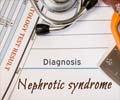A new study has suggested a strong link between organ transplants of solid organs in children, and the risk of advanced kidney disease

Ruebner is the first author of a study published online today in Pediatrics. The senior author is Susan L. Furth, M.D., Ph.D., chief of Nephrology at Children's Hospital.
Using data from the Scientific Registry of Transplant Recipients, the study team analyzed records of 16,600 pediatric patients who received solid-organ transplants (liver, heart, lung, intestine, and heart-lung) from 1990 to 2010 across the U.S. This was the first pediatric study to compare the relative incidence of end-stage kidney disease (ESKD) by type of organ transplant. It was also the first analysis to identify the risk of advanced kidney disease among pediatric solid-organ recipients over a 20-year period.
In this two-decade national cohort, the researchers found that ESKD occurred in 3 percent of pediatric solid-organ recipients, with the highest risk of ESKD among those who received lung transplants or intestinal transplants. Patients who received liver transplants as children had the lowest rate of ESKD.
In contrast, adult liver transplant recipients are known to have the highest risk of ESKD and adult lung transplant recipients have lower risks of ESKD. For both children and adults, intestinal transplantation carries higher risks of ESKD.
"Although the overall incidence of end-stage kidney disease was only 3 percent, the broader burden of chronic kidney disease is much higher in this population of pediatric transplant recipients," said Ruebner. "Children with chronic kidney disease experience a steady decline in kidney function, so we recommend that pediatric healthcare providers carefully follow post-transplant patients to detect any early signs of kidney problems, with early referral, if necessary, to a pediatric nephrologist."
Advertisement
Source-Eurekalert














